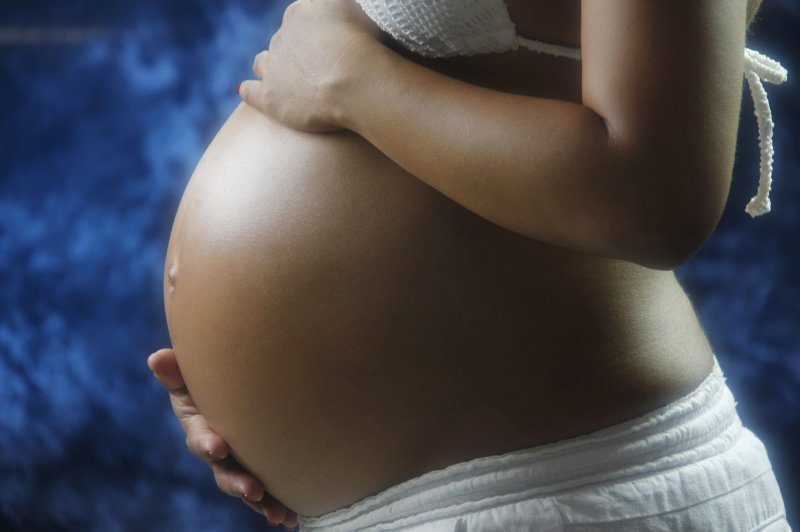Many fertility clinics in Britain, Australia and New Zealand -- and possibly many in the United States, as well -- continue to use a procedure that previous research has shown is not only useless, but painful, researchers report. Photo by DigitalMarketingAgency/Pixabay
Couples struggling to conceive a child through in vitro fertilization, or IVF, sometimes are offered an often-painful procedure known as "scratching the womb" as a desperate last hope to get pregnant.
As many as one-third of IVF clinics offer the practice in Australia, New Zealand and Britain, a new survey reports. It's very likely some U.S. clinics also offer the procedure, although numbers aren't available.
But if you're offered this option, most fertility experts say you should think twice.
The procedure, formally called endometrial scratching, has been largely discredited by the results of several large high-quality clinical trials, said lead researcher Sarah Lensen, an obstetrics and gynecology research fellow with the University of Melbourne in Australia.
More than half of fertility specialists surveyed said endometrial scratching is offered to patients solely to soothe them or offer them fresh hope, according to findings published Tuesday in the journal Human Fertility.
Fewer than one in 10 surveyed believed the procedure actually increases a couple's chances of conception or live birth, the results showed.
"Many of the doctors in the 2021 survey said that one of the benefits of the procedure is psychological," Lensen said. "For example, it reduces distress for women who really want to use it, or it offers hope to women starting a new IVF cycle."
About 10% of couples aren't able to easily conceive a child, and they turn to assisted reproductive technology methods like IVF for help, the researchers said in background notes.
In IVF, sperm and eggs are collected and fertilization occurs in a lab a viable embryo is then transferred directly into the woman's womb.
Endometrial scratching is another name for taking a biopsy from the endometrium, which is the inner layer of a woman's uterus, Lensen said. Tissue is gathered by "scratching" the endometrium with a lab tool.
"A group of researchers in Israel were taking these endometrial biopsies from women for testing purposes, when they observed that a higher proportion than expected fell pregnant in their IVF cycle," Lensen said.
"They theorized it may have been the action of taking the biopsy that caused some sort of disruption or scratching to the endometrium which was beneficial, and increased the chance of becoming pregnant," Lensen said.
The notion caught on with fertility specialists and many began offering the procedure as an "add on" during a couple's IVF cycle. A survey performed five years ago found it was offered by four out of five doctors, Lensen said.
But more recent clinical studies have shown no benefit to endometrial scratching, and that's led many doctors to reconsider the procedure, Lensen said.
The new survey of 121 fertility specialists in Australia, New Zealand and the United Kingdom found that 34% still offer endometrial scratching.
That remains a lot, given that only 8% of the doctors surveyed believe it increases the chances of conception.
About 55% said endometrial scratching could soothe the angst of frantic couples who've failed several rounds of IVF, and 33% said the procedure offers hope and motivation for women to continue treatment after unsuccessful cycles.
On the other hand, nearly 90% said they were concerned about the pain and discomfort associated with the procedure, and 80% with the additional cost to patients.
The procedure costs on average about $100 in Australia and $300 in the United Kingdom, according to figures provided in the study.
Endometrial scratching is not recommended by the American College of Obstetricians and Gynecologists, and it hasn't been reviewed by the American Society for Reproductive Medicine, representatives from both medical societies said.
"It was being done in the United States, and it probably continues to be done by some doctors under some circumstances," said Dr. Eric Flisser, an assistant clinical professor of obstetrics, gynecology and reproductive science at the Icahn School of Medicine at Mount Sinai, in New York City.
Sometimes reproductive doctors will shrug at practices like acupuncture that haven't been shown to harm a patient, even if it's questionable that the practice improves fertility, Flisser said.
"When there's evidence that something that's invasive and painful is not helpful, it becomes more of a question about whether or not it should be practiced," Flisser said, referring to endometrial scratching.
The procedure itself doesn't make sense on its face, Flisser added, in that the endometrium regenerates every month following a woman's period.
"It's shed each month and then it restores itself. How does damaging it by doing scratching in one cycle improve it for the next cycle? To me, it isn't necessarily logical that it would," Flisser said.
More information
The Mayo Clinic has more about in vitro fertilization.
Copyright © 2021 HealthDay. All rights reserved.
![]()
















